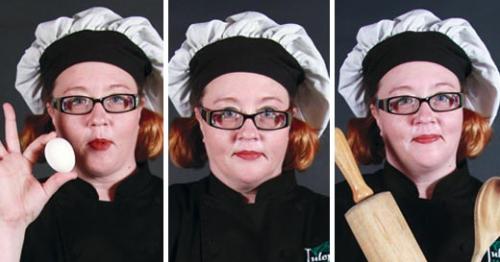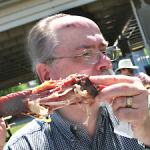At some point, every enthusiastic home or restaurant cook has heard the following from friends or family members: Oh, this is so good! You should really open your own restaurant.
It’s flattering, to be sure. If you’re a home cook with a killer repertoire of go-to dishes, you’ll fantasize about ditching office work and watching from the parking lot, hands on hips, as your restaurant’s sign is hoisted into place. If you’re already a bad-ass restaurant line cook, you’ve probably got a desktop folder full of recipes and menus you’ve written, ideas for restaurant names, and a short list of cooks you’d like to poach from other spots to work for you. Daydreaming is one thing. But what if it goes further? Maybe you decide to liquidate part of a stock portfolio, or cash in a 401k. Perhaps you’ve found that certain someone — a potential partner who’s a fan of your cooking and has funds readily available.
Whether you find a place ready to inhabit at the turn of a key or an empty box that needs a hood system and all the appliances, you’re still weeks or months from being able to open.
A real chef can’t just walk in on opening morning with a binder full of recipes, hopes and dreams. A chef has to supervise all the necessary cleaning and outfitting. He has to hire and train a staff, test and develop recipes, and stock the kitchen with food and smallwares. Is the liquor license in the works and on track to be approved before the projected opening? Is everything up to snuff so far as health regulations go? How about building permits? Real chefs owe it to themselves, their staff, and their future guests to monitor licensing progress closely — these are the things that so often cause opening dates to be pushed back over and over. You simply can’t open until all the paperwork is in hand and in order. Even the best line cook or sous chef in the world will find this process a huge challenge.
Now the real work begins. Menu writing, recipe costing and the resulting menu prices are crucial to the success of the restaurant. Typically food cost should be 30 percent or less of the menu item price to cover labor and other costs, and still result in a profit. This profit margin will be razor-thin in fine dining, so you have to make sure the math is right, and make sure you’re ordering quality ingredients that are at a reasonable cost to the business.
All of the above has to happen before the first thin dime rattles into the cash drawer. That means you’re already trying to play catch-up to recoup pre-opening costs once you’ve finally unlocked those doors. If you’re lucky and make a huge opening splash, the challenge becomes a juggling act: balancing product inventory and labor staffing versus expected business income. Should you order product based on the amount of business you had opening week? Should you write a schedule based on the staffing you wish you’d had that other crazy, packed Thursday night? Someone’s always going to call out sick or no-call no-show. Do you hedge your bets, or go all in?
If you’re a banker, you can’t turn people away because you don’t have enough money in the vault to cash a check, and you can’t send a loan officer home early because you don’t have very many clients this afternoon. Yet these are the realities of being a chef. You have to be a really skilled guesser as far as stocking foodstuffs, adjust par levels on the fly, and be ruthlessly accurate at checking in orders and sending back food that’s not up to your standards. And you’d better be ready to step in and do the job of that line cook or prep cook if you sent them home early and all of a sudden you get unexpectedly busy. It’s physically exhausting. It’s even more exhausting mentally. The chef at a new restaurant can realistically expect to work upwards of one hundred hours a week until things get on an even keel.
So, bear this in mind: Just because everyone at the office and your family Thanksgiving loves those pumpkin brownies, or just because you can arrange roasted vegetables oh-so-attractively on a marble slab and garner a ton of likes on Facebook for the photo you posted, that doesn’t make you a chef. Only excruciatingly hard work and business savvy can do that.
Marsha Lynch has worked at many Louisville independent restaurants including Limestone, Jack Fry’s, Jarfi’s, L&N Wine Bar and Bistro, Café Lou Lou, Marketplace @ Theater Square and Fontleroy’s.




